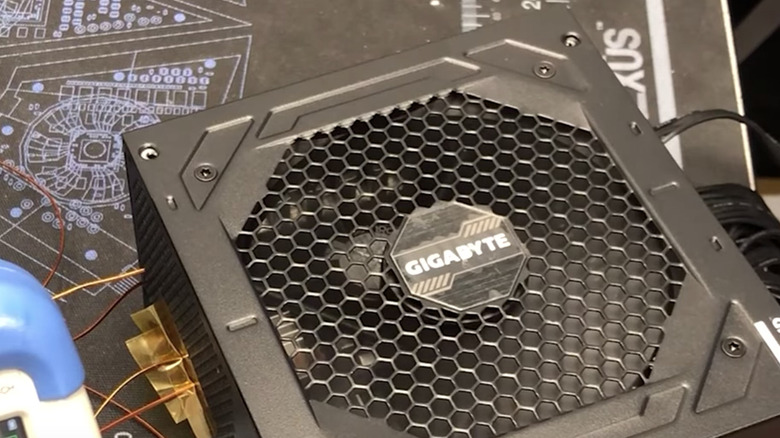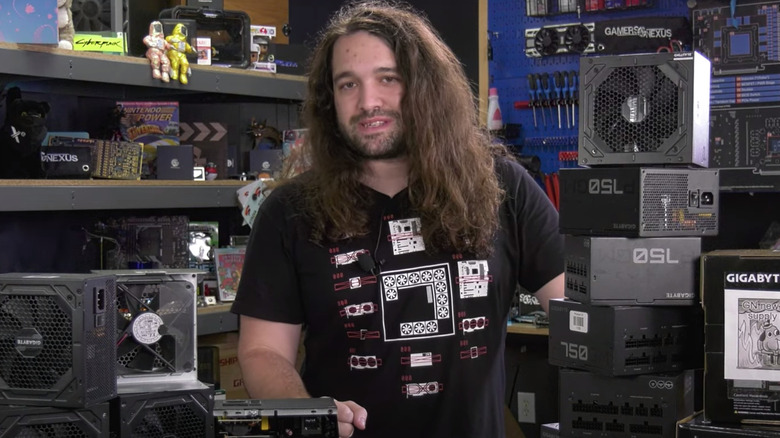The Exploding PC Power Supplies Explained
Newegg sparked some controversy with a questionable RTX series graphics card bundle earlier this year. Customers bought one of two power supply units, the GP-P750GM or GP-P850GM, along with their GPUs as part of a forced pair. Unfortunately, these PSU bundles exploded in one of the worst ways a gamer can imagine — both in real life with electrifying results and online in a "hate parade." Multiple people reported PSUs smoking, sparking, or just failing in general. Even worse, Newegg reportedly refused to refund broken PSUs unless the customer returned both the PSU and the graphics card.
The number of unhappy customers prompted gaming channel Gamers Nexus to investigate why these PSU models kept failing. Editor-in-Chief Steve Burke and his team opened multiple 750 and 850 units and set up a rigorous testing environment to investigate the truth behind the "exploding" power supplies.
During the investigation, they found that the PSUs had parts from different vendors, which varied based on the model and sometimes "just random chance." The 750 model and 850 model would understandably have some differences, but they found that models from the same family would sometimes have different parts too. That's just one of many suspicious data points in this case.
These PSUs are a dangerous investment
During the testing phase, Gamers Nexus ran the power supply units at different workloads and amounts of time. One of the most baffling cases, as Burke points out, was a unit that passed OPP (Over Power Protection) testing but exploded at a 60 percent workload. In other words, the unit survived a heavy charge without short-circuiting but died under an average workload — something that Burke called "unacceptable for any power supply."
Gamers Nexus compiled data from its experiment, Newegg reviews, and a YouTube community survey to estimate failure rates for the 750 and 850 units. Both the experiment and Newegg reviews reported about a 50% failure rate for both units, although the YouTube community survey reported a much lower rate. DOA (dead on arrival, meaning that the power supply was broken before even in use), destroyed components, and random shutdowns were just a few reasons for failure.
Burke suggested staying far away from these power supplies. For those already using the PSUs, he said, "We're not going to tell you to rip it out." After all, the data suggested that some of these parts could keep working without any issues. However, he also admitted, "Personally, I would not be comfortable leaving this running on my computer. I would remove it."


